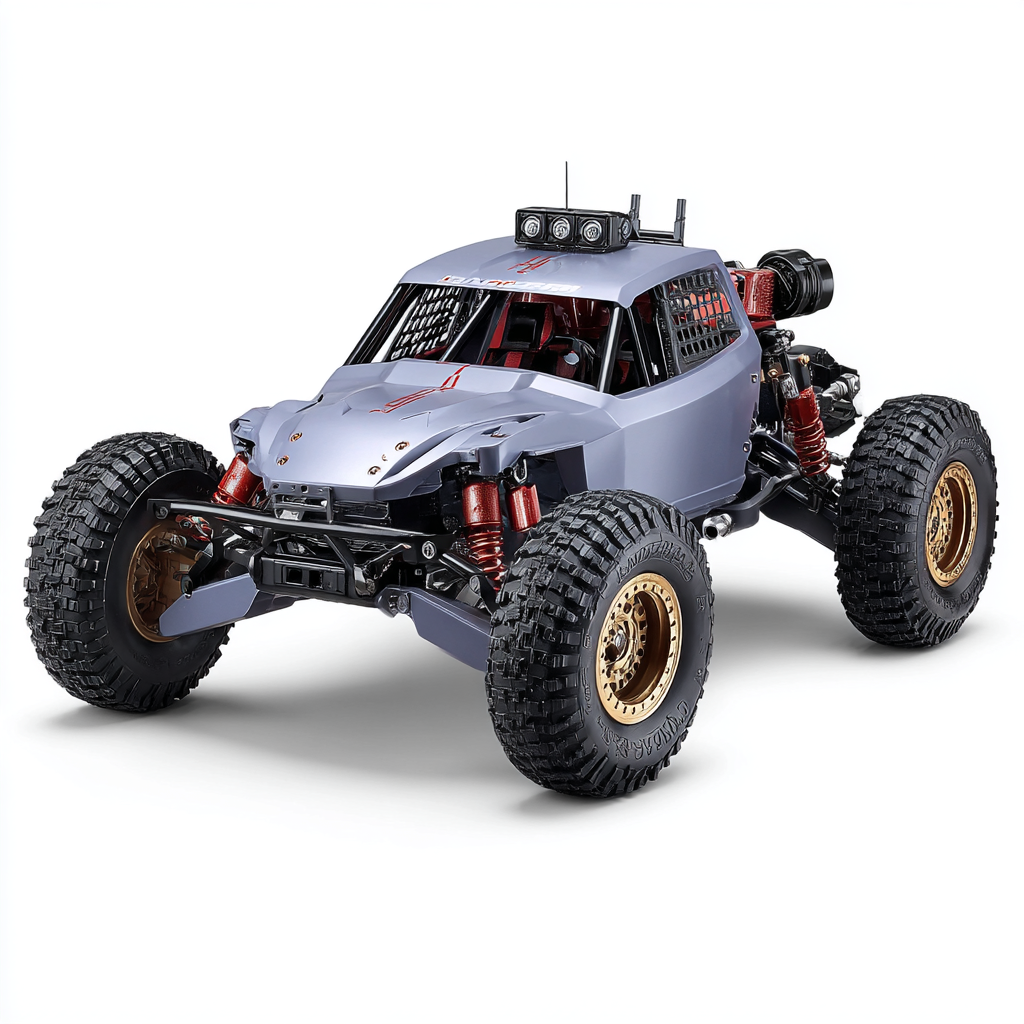Choosing the right gasoline RC cars can elevate your racing experience to new heights, providing not just thrill but also an engaging hobby that blends engineering, speed, and fun. With a plethora of options available in the market, from beginner-friendly models to high-performance machines designed for professional racers, understanding the key factors that differentiate these vehicles is crucial. This blog will delve into essential considerations for selecting the best gasoline RC cars, including engine size, durability, design, and performance capabilities. Whether you're a novice eager to start your journey or a seasoned racer aiming to optimize your setup, our guide will help you navigate the vast world of gasoline RC cars to ensure you make an informed choice that aligns with your racing ambitions and preferences. Get ready to rev up your engines and dive into an exhilarating world of remote-controlled racing!

When selecting the best gasoline RC cars for an ultimate racing experience, several key features should be carefully considered. First and foremost, engine power is crucial. High-performance gasoline engines, typically ranging from 2.5 to 5.0 cc, provide the best speed and acceleration. According to a 2022 industry report by the Remote Control Vehicle Association, vehicles with engines rated over 3.5 cc tend to reach speeds exceeding 50 mph, appealing to enthusiasts looking for adrenaline-filled races.
Another pivotal feature is the car's durability and construction quality. Models made from reinforced materials such as aluminum and carbon fiber not only withstand the rigors of racing but also enhance handling and performance on various terrains. A recent survey indicated that 68% of serious racers prioritize durability when investing in gasoline RC cars. Additionally, advanced suspension systems improve stability and control, allowing racers to navigate challenging courses more effectively. Checking for adjustable components can further customize the car’s performance based on personal racing styles and track conditions, ensuring an exhilarating racing experience.
 When it comes to gasoline RC cars, understanding the different types of gasoline RC engines is crucial for enhancing your racing experience. The two primary categories are two-stroke and four-stroke engines. Two-stroke engines are generally lighter and provide a higher power-to-weight ratio, making them ideal for those seeking speed and agile handling on the race track. However, they do tend to produce more noise and exhaust emissions, which might not be suitable for every environment.
When it comes to gasoline RC cars, understanding the different types of gasoline RC engines is crucial for enhancing your racing experience. The two primary categories are two-stroke and four-stroke engines. Two-stroke engines are generally lighter and provide a higher power-to-weight ratio, making them ideal for those seeking speed and agile handling on the race track. However, they do tend to produce more noise and exhaust emissions, which might not be suitable for every environment.
Four-stroke engines, on the other hand, are known for their durability and fuel efficiency. They operate more quietly and create a smoother power delivery, which can be advantageous in races requiring precision and control. Their design typically results in longer run times and less maintenance compared to two-stroke engines. Ultimately, your choice between these engine types should reflect your racing style and preferences, as each has its own unique set of advantages that will influence your overall experience on the track.
When it comes to choosing the best gasoline RC cars, selecting a reputable brand is crucial for ensuring performance and durability. Leading manufacturers like Traxxas, HPI Racing, and Losi have long set the standard in the industry, offering innovative features and superior quality. According to a recent report by the Remote Control Vehicle Association, brands such as Traxxas account for over 30% of the market share, due to their robust engineering and commitment to technology. Their models typically provide faster speeds, with some reaching in excess of 60 mph, making them ideal for competitive racing.
Additionally, HPI Racing is renowned for its diverse lineup of gasoline-powered RC cars that cater to both beginners and seasoned racers. Their vehicles are designed with adjustable settings, allowing users to fine-tune performance based on individual racing conditions. The latest market trends indicate that consumers prefer models with enhanced fuel efficiency and lower emissions, reflecting a growing concern for environmental sustainability. Losi, on the other hand, is recognized for its cutting-edge design and powerful engines, which deliver exceptional performance on challenging terrains. By focusing on these top brands, you can ensure a thrilling and reliable racing experience that meets your specific needs.
When it comes to enhancing your gasoline RC racing experience, the right accessories can make all the difference. First and foremost, a high-quality pit tool set is essential. This set should include items like screwdrivers, wrenches, and pliers, which allow you to make quick adjustments and repairs on the fly. Having the right tools at hand ensures that you can keep your car in top condition during races, leading to better performance and more enjoyable racing sessions.
In addition to tools, consider investing in upgraded tires and fuel. Tires designed for specific track conditions can greatly enhance grip and handling, allowing for sharper turns and improved speed. Furthermore, using high-performance fuel specially formulated for RC cars can lead to more power and efficiency, giving you a competitive edge. Pairing these upgrades with a reliable starter kit and a quality fuel bottle will ensure you are always race-ready, eliminating downtime and maximizing your racing fun.
When it comes to maintaining gasoline RC cars for an ultimate racing experience, understanding the importance of efficient upkeep is crucial. Regular maintenance not only enhances performance but also prolongs the life of your vehicle. Routine checks on the engine, fuel system, and tires can help ensure that your RC car operates at optimal levels. For instance, consistent cleaning of the air filter and ensuring proper fuel supply directly affect engine performance, leading to a more responsive and enjoyable racing experience.
Moreover, proper storage can make a significant difference in the longevity of your gasoline RC vehicles. Vehicles should be stored in a cool, dry place to prevent rust and damage from humidity. Fuel quality is another critical point; using high-quality fuel not only boosts performance but also minimizes harmful emissions, which is increasingly relevant as technology shifts toward cleaner alternatives in the automotive industry. Recent analyses highlight that hydrogen fuel cell vehicles consume substantially less energy and produce far fewer greenhouse gas emissions compared to traditional combustion engines, setting an industry benchmark. While these findings primarily address full-size vehicles, they underline the importance of mindful practices in the small-scale RC market as well, particularly as consumer awareness about sustainability continues to rise.

